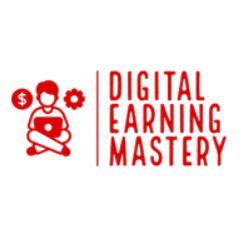How to write a Winning Resume for Remote Jobs. It is critical to write a resume that stands out and is customized for these opportunities.
This article offers a thorough road map to assist you in writing a winning resume to land a remote job, from comprehending the particular requirements of remote job applications to avoiding typical mistakes and optimizing for Applicant Tracking Systems (ATS).

Understand the Remote Job Market
The market for remote jobs has grown significantly in recent years due to changes in work choices, technological advancements and changes in workplace dynamics worldwide.
It is essential to comprehend this changing environment if you want to modify your resume to fit the requirements of remote employment chances. Use this guide, Start Your Remote Job Career Free Guide.
Important Trends in the Remote Job Market
- Increased Demand for Remote Work: Advances in digital technology have increased the availability of remote jobs across various industries.
- Diverse Remote Job Opportunities: Remote work opportunities now span multiple sectors, including technology, marketing, and healthcare.
- Global Talent Pool: Companies are sourcing talent worldwide, leading to increased competition but also broader access to job opportunities.
- Focus on Results and Productivity: Employers value results and productivity over physical presence, seeking candidates who can deliver outcomes independently.
- Emphasis on Soft Skills: Key remote work skills include self-discipline, effective time management, and strong communication abilities.
Opportunities in the Remote Job Market
- Flexibility and Work-Life Balance: Remote jobs often provide enhanced flexibility and a better work-life balance.
- Access to Diverse Roles: The remote job market offers opportunities across a wide range of fields and industries.
- Cost Savings: Remote work can lower costs associated with commuting and office expenses.
Challenges in the Remote Job Market
- Increased Competition: The global nature of remote work has intensified competition for available positions.
- Adapting to Remote Work Culture: Success in remote roles requires familiarity with remote collaboration tools and practice
Tailor Your Resume for Different Remote Jobs
You may increase your chances of getting an interview by tailoring your resume for particular remote work role. This will help you stand out in the competitive remote job market and present yourself as a qualified candidate. Here’s how to effectively tailor a winning resume for remote Jobs:
- Understand the Role Requirements: Examine the job listing to align your resume with the specific skills and qualifications needed for the position.
- Customize Your Summary or Objective: Adjust your summary or objective statement to reflect the job’s unique responsibilities and goals.
- Highlight Relevant Experience: Focus on work experiences and achievements that are relevant to the job role.
- Showcase Relevant Skills: Feature the core skills required for the role prominently on your resume.
- Use Keywords from the Job Posting: Integrate key terms from the job description to pass through Applicant Tracking Systems (ATS) and demonstrate relevance.
- Adjust Your Job Titles and Descriptions: Tailor job titles and descriptions to align with the language used in the job posting.
- Demonstrate Remote Work Skills: Highlight your ability to work independently and manage remote tasks effectively.
Essential Elements of a Winning Resume for Remote Jobs
- Write a brief statement that emphasizes your suitability for remote work and aligns with the job’s specific needs.
- Highlight important skills for remote positions, such as self-motivation, effective time management and familiarity with remote collaboration tools.
- Describe prior remote work roles, focusing on relevant achievements and responsibilities.
- Include specific, quantifiable results to show your impact and success in previous positions.
- Relevant Keywords: Incorporate terms from the job listing to improve your resume’s chances with Applicant Tracking Systems (ATS).
- Professional Layout: Ensure your resume is neatly formatted and visually clear, with distinct headings and an organized structure.
- Contact Information and Online Profiles: Provide current contact details and links to your professional profiles or portfolios that highlight your remote work experience.
Showcase Soft Skills and Remote Work Abilities
When showcasing soft skills and remote work abilities on your resume, it’s crucial to emphasize and highlight qualities that are essential for succeeding in a remote environment such as.
- Self-Motivation: Give examples of how you can operate independently and accomplish objectives without close supervision.
- Effective Communication: Share instances where you successfully interacted with team members and clients in a virtual environment, ensuring clear and efficient communication.
- Time Management: Describe how you effectively organized your schedule and prioritized tasks to maintain productivity while working remotely.
- Problem-Solving: Highlight situations where you overcame challenges or resolved issues in a remote work context, demonstrating your problem-solving skills.
- Adaptability: Demonstrate your capacity to quickly adapt to new technology, tools, or modifications to remote work procedures.
- Collaboration Skills: Describe how you coordinated projects and ensured continuous production despite physical distance while working effectively with remote teams.
- Technical Proficiency: Emphasize your skills with remote work tools and platforms, such as video conferencing software and project management systems.
Add References and Recommendations
Your resume can be strengthened and your reputation increased for remote work prospects by skillfully utilizing references and recommendations. Here’s how to use them effectively:
- Choose Relevant References: Select individuals who can attest to your remote work skills and experience, such as former supervisors or colleagues who have witnessed your ability to work independently and communicate effectively.
- Request Specific Recommendations: Seek recommendations that detail your remote work accomplishments and skills, including project management and virtual collaboration.
- Incorporate Professional Endorsements: Use endorsements from industry professionals or clients to validate your remote work capabilities and achievements.
- Provide Up-to-Date Contact Information: Ensure that your references’ contact details are current and accurate, making it easy for potential employers to reach them.
- Highlight Key Recommendations: Include brief quotes or summaries from recommendations directly on your resume to emphasize your strengths and reliability.
- Prepare a Reference List: Have a separate document ready with a list of references, including their names, titles, organizations, and contact information, to provide when requested.
Use Keywords Effectively in Your Remote Job Resume
Strategically using keywords in your resume can greatly increase its efficiency and visibility. You can improve your resume’s chances of getting past applicant tracking systems (ATS) and hiring managers’ notice by skillfully combining keywords. Here’s how to make efficient use of keywords to write a winning resume for remote jobs:
- Examine Job Listings: Study several job postings for similar remote positions to identify frequently used keywords and phrases.
- Incorporate Keywords Smoothly: Embed these keywords naturally into relevant parts of your resume, including the summary, skills, and experience sections.
- Apply Role-Specific Language: Use terminology and jargon specific to the industry and job role to align with the job’s requirements.
- Emphasize Important Skills: Highlight skills mentioned in the job description, such as “remote project management” or “virtual team coordination.”
- Use Dynamic Verbs: Pair keywords with strong action verbs to describe your accomplishments and duties, such as “led,” “managed,” or “implemented.”
- Avoid Overuse: Ensure that keywords are integrated contextually and naturally, rather than overloading your resume.
- Customize for Each Role: Adapt your resume for each job application by modifying keywords based on the specific job description and its requirements.
Optimize Your Resume for Applicant Tracking Systems (ATS)
In today’s job market, making sure your resume is ATS-friendly is essential to being noticed. This increases the likelihood that your resume will get past ATS filters and get in front of human recruiters. Here’s how to make your resume stand out:
- Use Simple Formatting: Use a straightforward layout without elaborate designs or graphics that might confuse ATS software.
- Incorporate Relevant Keywords: Integrate keywords from the job description throughout your resume, especially in the summary, skills, and experience sections.
- Use Standard Headings: Apply conventional headings like “Work Experience,” “Skills,” and “Education” to help ATS easily navigate and categorize your content.
- Match Job Titles: Use job titles and terms from the job posting to align your resume with the position.
- Avoid unprofessional Fonts and Graphics: Choose basic fonts such as Arial or Times New Roman and avoid non-standard fonts or graphics that may not be recognized by ATS.
- Include Essential Sections: Ensure that your resume includes key sections like skills, experience and education, which are crucial for ATS evaluation.
- Submit in Compatible Formats: Save and submit your resume in widely accepted formats like .docx or .pdf, as these are generally compatible with ATS systems.
Top Mistakes to Avoid When Writing a Remote Job Resume
Avoiding these mistakes will help you craft a more effective resume tailored for remote job applications.
- Neglecting Remote-Specific Skills: Not emphasizing skills crucial for remote work, like self-motivation and virtual teamwork, can weaken your resume.
- Using a Generic Resume: Submitting a generic resume rather than customizing it for the specific remote role can make it less effective.
- Forgetting Keywords: Failing to include relevant keywords from the job listing may cause your resume to be overlooked by Applicant Tracking Systems (ATS).
- Complicated Formatting: Utilizing complex designs, graphics, or unconventional fonts can make your resume hard to read and ATS-unfriendly.
- Missing Quantifiable Achievements: Not showcasing measurable results and accomplishments can undermine the impact of your resume.
- Omitting Contact Information: Leaving out crucial contact details or professional links can prevent recruiters from reaching you.
- Inadequate Remote Work Evidence: Not clearly outlining your remote work experience can diminish your appeal for remote positions.
